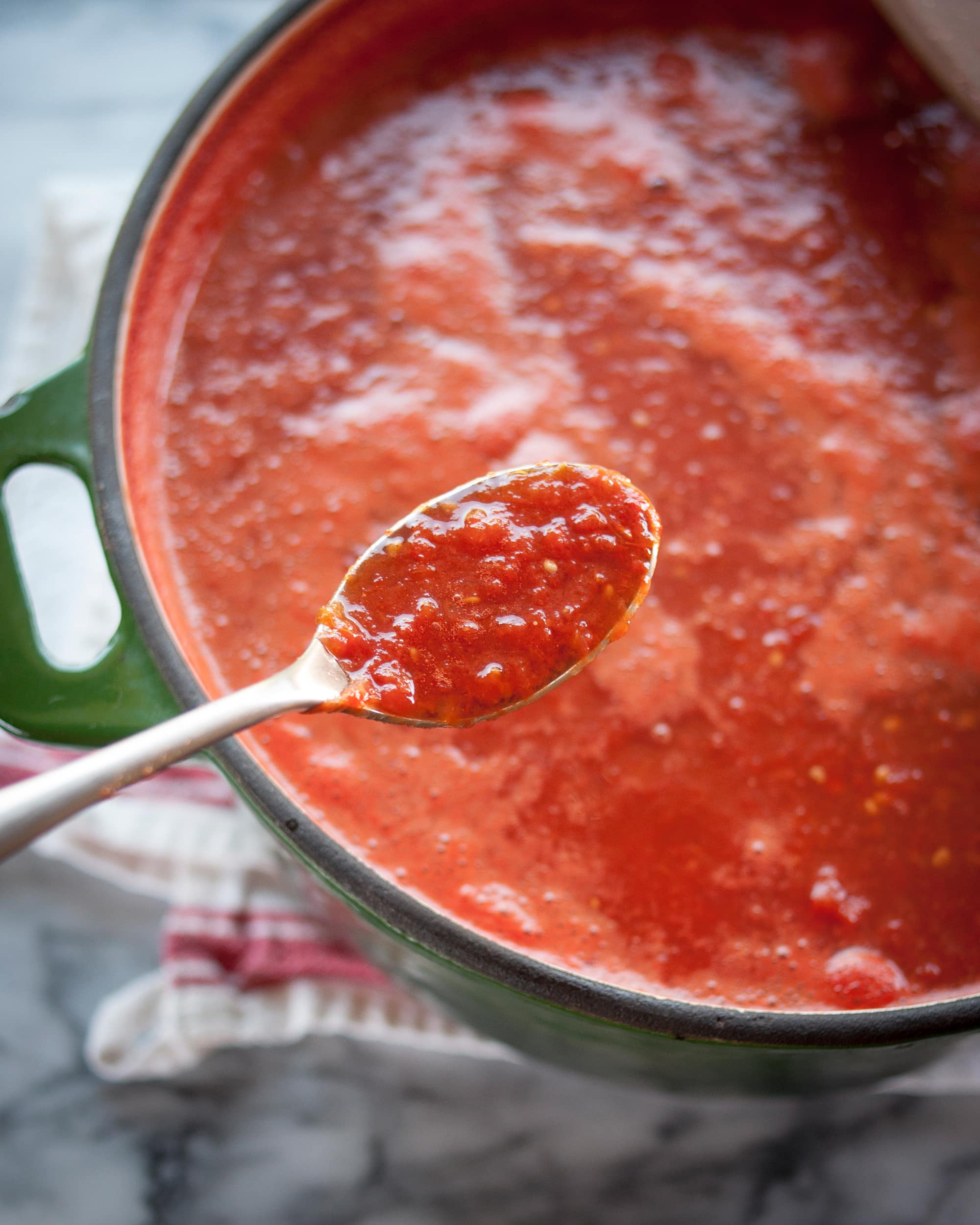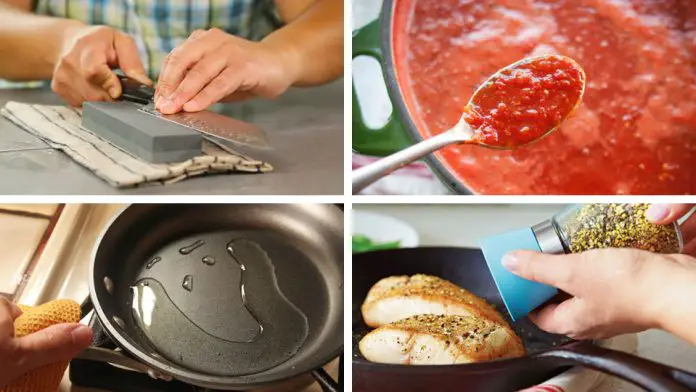Let’s face it, not everybody is an expert in cooking. It is okay to make mistakes (we’re humans, after all) in the kitchen as long as we learn from them. But there are times when we neglect them to the point where they become a habit. So, if you are aiming to become a better cook, these are 8 Bad Cooking Habits You Should Avoid.
1) You Neglect Sharpening Your Knife
No matter how cheap or expensive your kitchen knife is, it would become dull sooner or later. A sharp knife matters because it helps to cut, slice and dice through your cooking ingredients easily and effectively. But when your knife is already dull and you insist on using it, you are practically risking your fingers and hands. A dull knife means you have to apply more pressure than usual (e.g. imagine cutting a solid fruit like an apple into half). If you are not careful enough, there is a huge chance you will lose control of the knife. So, make a habit to sharpen your knife with a whetstone. Your fingers and hands will thank you for it.

2) You Forget To Preheat Your Pan
Making scrambled eggs? Or perhaps, stir-frying some noodles or rice in a pan? Whatever you do, never add the ingredients directly into a cold pan. Here’s why: A cold pan requires a longer time for the dish to cook and you might risk overcooking your food. So, always preheat your pan before you start your cooking process.

3) You Let The Oil Sit Too Long
Earlier, we mentioned the importance of preheating a pan prior to the cooking process. However, preheating a pan with the oil that sits there for too long is a recipe for disaster. And when the smoke emits from the pan, you are basically wasting your cooking oil. Even if you insist on cooking them, your food will end up with a burnt taste.

4) You Overcrowd Your Pan
Thinking of cutting some time by tossing all your ingredients in the pan at one go? Big mistake. Doing so would cause your food to be either tasteless, undercooked or not getting the desired result you were hoping for. Which is why it helps to exercise patience because your ingredients need some space to cook properly on the hot surface of the pan.

5) You Cook Frozen Food Straight Into The Pan
Sure, frozen food is meant to be convenient. But that doesn’t mean you can unpack, say, a bag of frozen mixed vegetables and toss them directly into the pan. Doing so will cause the mixed vegetables to turn soggy and taste unpleasant. Always defrost your frozen food at least until room temperature before cooking.

6) You Season Your Food At The Last Minute
Seasoning too late or at the final stage of the cooking process is generally a bad idea. Here’s why: seasoning with herbs or spices like thyme, rosemary and oregano requires time to infuse its aromatic flavours into your cooking ingredients. So, if your recipe calls for plenty of herbs and spices, it’s best not to wait until the last minute to throw in the seasoning.

7) You Neglect Tasting Your Food During The Cooking Process
Unless it is a simple cooking process like preparing a packet of instant noodles or frying an egg, it’s best to taste your food as you cook. This is especially true for cooking sauces. Take spaghetti sauce, for example; You may add in all the necessary ingredients (e.g. oregano, canned tomato, minced meat) but it’s actually never enough. You need to taste it as well (by grabbing a spoon, of course). Because you never know you might need more seasoning or so on.

8) You Are Not Allowing Your Meat To Rest
So, you are looking forward to savouring your homecooked roast chicken with your loved one. Then, things go downhill from there: You cut the cooked chicken meat into pieces the moment you pull the tray out from the oven. Here’s what happens: Cutting your meat too soon means the juice within will dry out quickly and lose its flavour. The solution? Let your chicken or any meat to sit for a while (give it around five minutes or so before you dig in). This is to allow the juice to absorb into the meat, resulting in a juicier and flavourful dish.
















